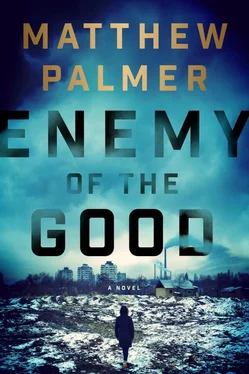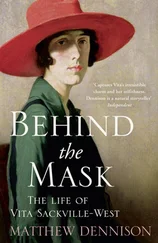“Not so far as I know,” Ruslan answered Murzaev with more confidence than he felt. “She knows me only as Seitek.”
“Even during pillow talk?” Predictably, Valentina was the only one with the courage or the lack of tact to ask what Ruslan knew they were all thinking. She was a leader, and the de facto spokesperson for the younger members of the council, the former Olympic wrestler Hamid Ismailov and the Tatar twins Albina and Yana Garayev, who were also graduates of the international school.
“Bermet was using your stage name in bed?” Val continued.
Ruslan held up his hands in a gesture of surrender.
“Yes. She asked about my real name, of course. It’s only natural. But I thought it would be dangerous for her to know.”
“And for you,” Valentina added with a hint of steel. Ruslan knew that she had never approved of his casual affair with Bermet, considering it a vulnerability. It was easier and easier to see her point.
“That too.”
Ruslan knew he had a reputation as something of a womanizer. He did not enjoy the reputation, but he did seek out female company. And he knew he was attractive to women. He was tall for a Kyrgyz and slim with a thick shock of black hair and eyes as dark as onyx. He had an easy smile and a charisma that drew women in in the unconscious way a planet might capture a moon. None of the relationships was serious. It had been a long time since Ruslan had been serious about a woman, about anything but his mission and his responsibilities as a leader of idealists and amateur revolutionaries.
“I just don’t want you making decisions on behalf of all of us because you and Bermet were making the beast with two backs.”
“ Romeo and Juliet? ” Ruslan asked.
“ Othello . But half credit for Shakespeare.”
Valentina could always be counted on for a good literary allusion. She had once jokingly suggested to Ruslan that she’d like to be minister of culture in his government when Eraliev had been deposed. Ruslan had replied quite seriously that he needed Valentina as minister of foreign affairs. Typically, her riposte had been a quote from the American revolutionary John Adams: I study politics and war so that my children might study mathematics and commerce and their children might study music and poetry.
Valentina was an intellectual and an artist. Ruslan respected that, but he was not a thinker. He was a doer.
“Don’t worry. I’m not some lovesick puppy,” Ruslan replied. He knew, however, that this was personal, not because he and Bermet enjoyed the occasional dalliance, but because of the way she had thrown herself bodily to the wolves to save him from their pursuers. If he could rescue her, he would. Even at great cost.
He said none of this to Valentina. She would not have understood.
“What are our options, Askar?”
The Boldu security chief shook his head.
“None that jumps off the page. Her cell in Prison Number One is entirely secure. According to our source, once the trial is over, Bermet will be sent directly back to the prison and transferred to the Pit.”
“Can we break her out of her cell?” Ismailov asked. He was hunched forward on the edge of his chair, a lit cigarette dangling from the corner of his mouth. He had an athlete’s predilection for action. “Can our agent get us inside?”
“No,” Murzaev was matter-of-fact about it. There was little room for sentiment in his profession. “Another prison, maybe. Number One is too carefully guarded.”
“What about the Scythians?” Ruslan asked.
Boldu was a political movement, but the council did not expect the Eraliev regime to pack up its tents and slink off into the night. The ruling clique would fight to hold on to power, and Boldu would have to be ready to respond in kind or risk being slaughtered like spring lambs.
Nogoev was an experienced soldier. He and Ismailov had handpicked a group of Boldu supporters—young and fit men and a few women—and trained them as the armed wing of the movement. Murzaev had been able to get them a small cache of military-grade weaponry from his contacts in the Kyrgyz army. The country’s sparsely settled countryside offered countless places where they could train without fear of being observed by government spies. When the time came to challenge the Eraliev government openly, the movement would not be defenseless. Nogoev had given his small strike team the name Scythians, a nomadic horse-riding culture that had dominated the steppes of central Asia some three thousand years ago and cast a shadow that stretched as far as the Nile before being eclipsed by Alexander and his Macedons.
“I can get us inside the prison,” Nogoev said. “But I doubt very much that I can get us back out. The Scythians are getting better. But they’re not Spetsnaz. Not by a long shot.”
“What about the courtroom? It should be less well guarded than the prison. Can we raid the trial?”
“It’s possible,” Nogoev said. “But it’d be bloody. There would be civilian casualties. Maybe significant casualties. In my opinion, it’s not worth the risks and the costs.”
Ruslan bit back the impulse to tell Nogoev that in his opinion nothing was ever worth the risk.
“So where does that leave us?” he asked instead, trying to make the question sound conciliatory. If he was going to find a way to save Bermet, he was going to need Nogoev’s enthusiastic cooperation.
He was not there yet.
“Mourning a falling comrade. This is a war, Ruslan. There will be losses. Grievous losses.”
“I need a better answer than that.”
“If they were going to transfer Bermet to one of the labor camps, and we knew which one and when, we could potentially ambush the convoy. The Scythians would be up to that, I think.”
“Any indication that Eraliev may be planning to do that? Send Bermet off to one of the labor camps.”
“No. At least not before she’s been summoned to Torquemada’s house of pleasure. And there won’t be much left of her after that, I’m afraid.”
Ruslan knew what Nogoev was doing. Baiting him. Hoping that he would get angry with his military advisor rather than choose a course of reckless desperation because of anger at either Eraliev or himself. He knew that Nogoev was not unaffected by thoughts of what awaited Bermet in prison. He had liked her. Ruslan squeezed his right hand into a fist and tamped down the anger that Nogoev had succeeded in fanning.
“So we need to get Bermet transferred to a labor camp now,” Valentina said. “Before the trial.”
“Only the president can do that,” Murzaev said dismissively. “Somehow I don’t see him accommodating us.”
“How would it work?” Valentina asked. “If Bermet was going to be transferred to one of the camps, how would the order come down? Who would it be from and what would it look like?”
Ruslan had the sense that Valentina was not merely grasping at straws. That she had something in mind. That the questions were purposeful.
“Bermet’s been classified as a Tier I political prisoner. Any order to transfer a Tier I within the prison system has to come directly from the president’s office.”
“How?” Valentina pressed. “Does the president make a phone call? Send a letter?”
“The transfer order is on a form. I’ve seen it done for military prisoners.”
“Could our person on the inside get a copy of this form?”
“I suppose that wouldn’t be too difficult,” Murzaev said as though he were making some grand concession. “The form itself should be readily available on the computer system at the interior ministry. But it’s only valid if it’s stamped with the presidential seal. Without the seal, it’s useless. And the seal we don’t have access to.”
Читать дальше












